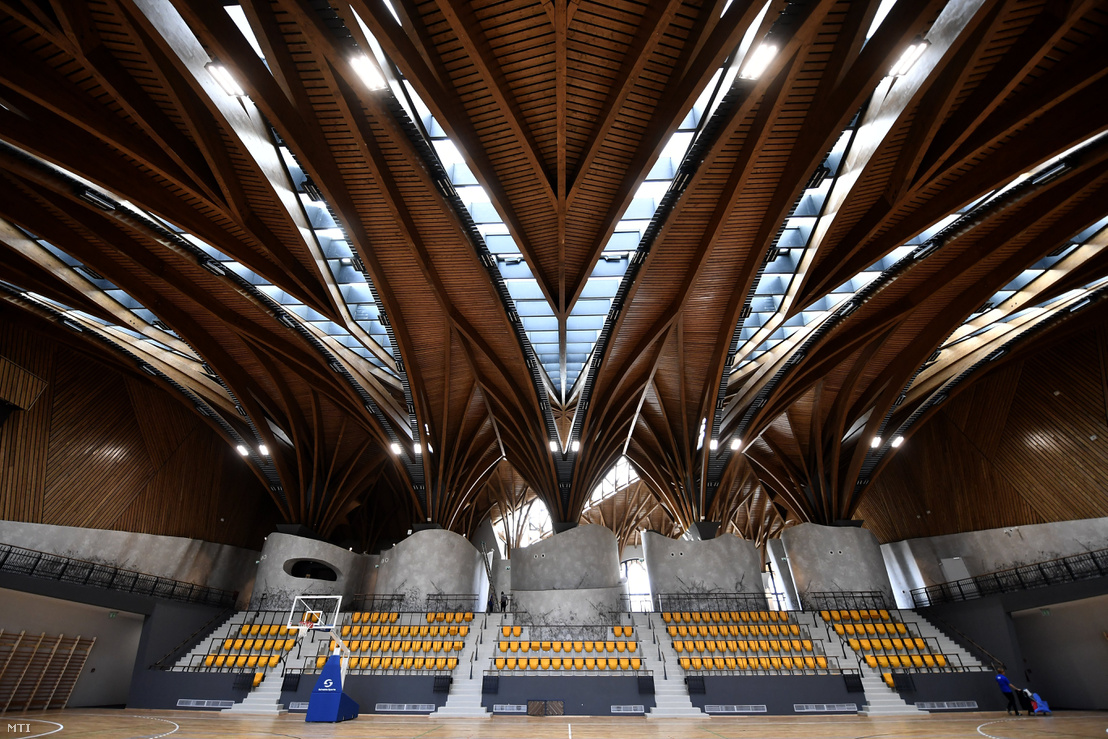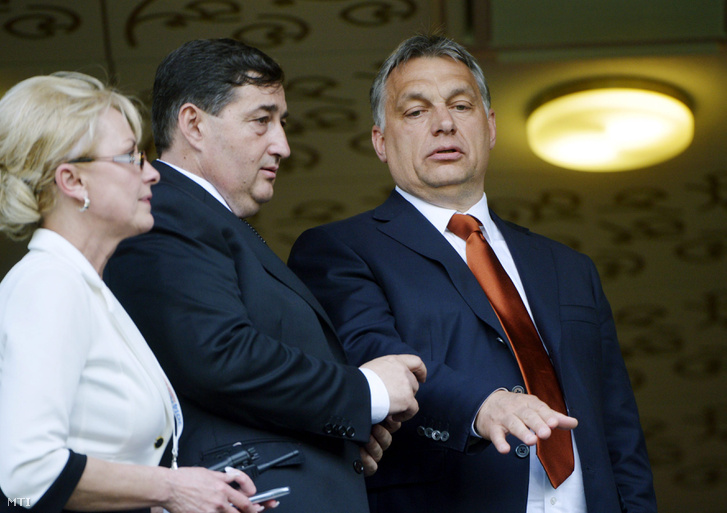Mysterious €11 Million Cost Overrun on Huge Indoor Sports Complex in Orbán's Hometown

További In English cikkek
Since 2011, corporate taxpayers in Hungary can gain a tax advantage or tax credit by sponsoring cultural organizations or sports clubs (for easier readability, we will be using the tax benefit's Hungarian abbreviation "TAO" from this on). In the most reductionist terms, this means that companies can reduce their corporate taxes by giving it directly to specific types of organizations whose development programs were approved by the relevant authorities and in the case of sports clubs, the relevant national sports federations. Sports TAO sponsorships can only be given to clubs active in certain spectacle sports, chief amongst which is football, the Prime Minister's favorite sport.
Many criticize this tax benefit scheme for being a vehicle for corporations to get in favor with Mr. Orbán, channelling what are in essence public funds towards his circles, as his foundation that runs the Felcsút Football Academy had already received north of €50,000,000 in sponsorship as of 2017 since the introduction of the scheme. Felcsút, a village of 1800 that is a half hour's drive from Budapest, happens to be Mr. Orbán's hometown.
Recently we noticed in the Hungarian Football Association's database that the Felcsút foundation collected almost €20,000,000 for its €16,800,000 approved "sports development program". The program's principal goal was to construct a large sports and conference complex in Felcsút. The foundation's website, however, had a different figure: the program was expanded to allow for contributions up to €28,000,000. A €11,2 million overrun, representing a 66 per cent increase.
Apart from Felcsút, there were 1288 other clubs with approved TAO programs in the same period nationwide, with a total value of €106,000,000. The average amount is €82,000, which is not even 0.3% of the sum approved for Felcsút.
Even if we disregard doubts regarding the actual need for oversized luxury sports facilities in a small village, two questions arise.
- How did the value of Felcsút's program suddenly jump by that much?
- What was the new funding needed for?
The short answers are simple: Felcsút filed a request for a program expansion in June, for the enlargement of its indoor sports complex.
But when we looked into the detail, what we found was very alarming.

According to a lawyer speaking to Index, the expansion did not meet the legal requirements mentioned in the paragraph cited by the Hungarian Football Association's decision, as it contained a new item missing from the original project description.
Felcsút should have requested the expansion within 30 days upon learning that it had become necessary. It seems entirely unlikely, that in a project finished in August, the need for covering a 66 per cent increase in the cost arose only in May.
The foundation filed for the expansion on 20 June 2018. And by 27 June, the approval was miraculously posted. This means that it took two ministers and the Hungarian Football Association five working days altogether to investigate and approve the €11,200,000 expansion.
The general contractor responsible for both the construction and the enlargement of the altogether €38,000,000 sports and conference complex is a company owned by the children of Mr. Lőrinc Mészáros, the president of the Felcsút Football Academy.

Mr. Mészáros is the former mayor of Felcsút, Prime Minister Viktor Orbán's childhood friend and confidant, who quickly stepped up the ranks in the past few years from working as a pipe-fitter to becoming the 5th richest Hungarian. The contracts were awarded without public procurement procedures.
It is also unclear what the "enlargement" of the complex exactly means. The facility's building permit dates back to October 2016, which means that the building's footprint and overall size could not have significantly changed since it was issued. That could be explained if the original plans included the future enlargement, but if that were the case, the need for extra funding would have been apparent since then, and not since May 2018.
According to the Hungarian Football Association's bylaws, due to its size, the expansion would have necessitated a formal decision from their Board of Directors, but there is no trace of any such decision.
This article is an abridged version of the original published in Hungarian.

Support the independent media!
The English section of Index is financed from donations.


